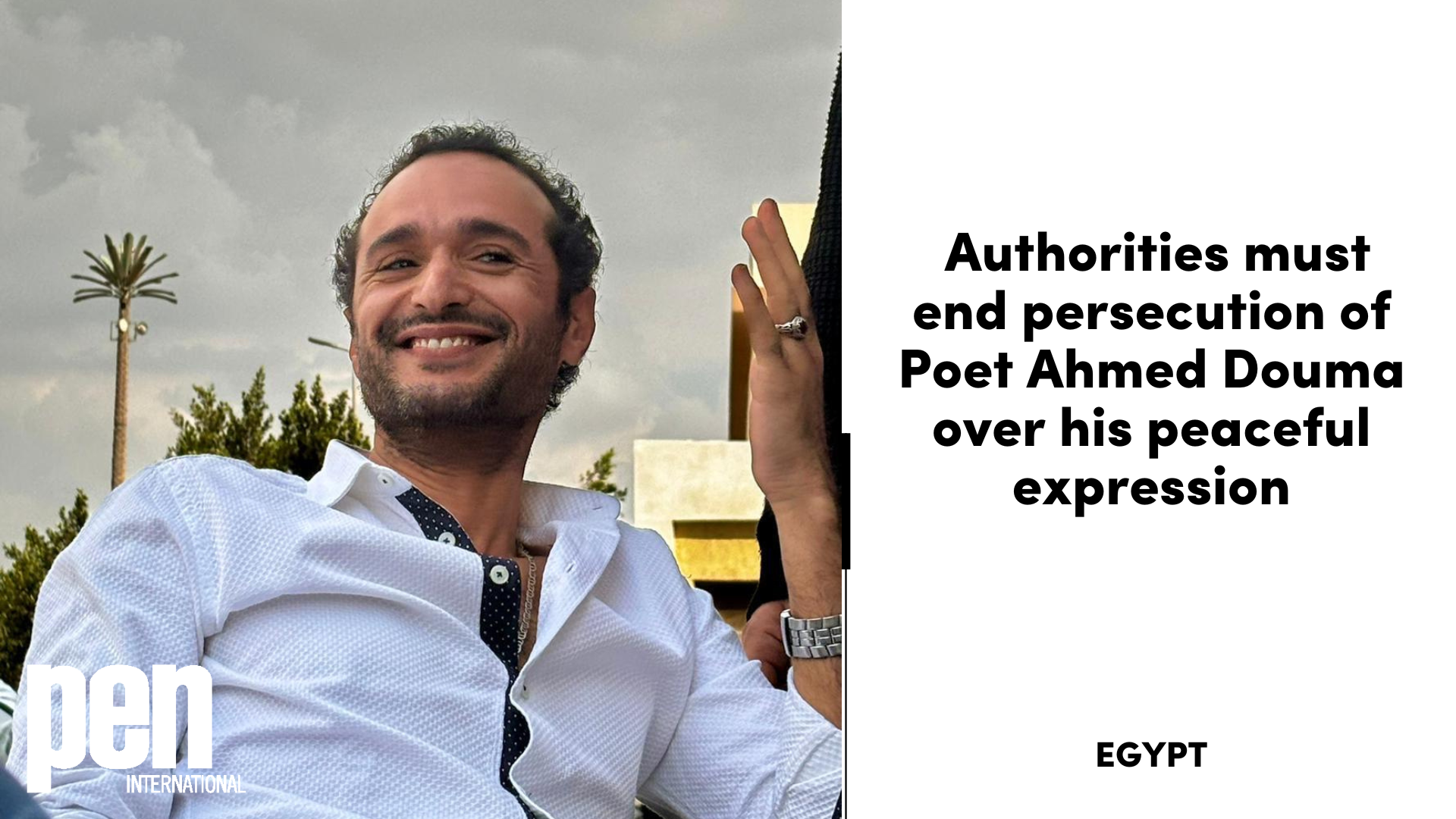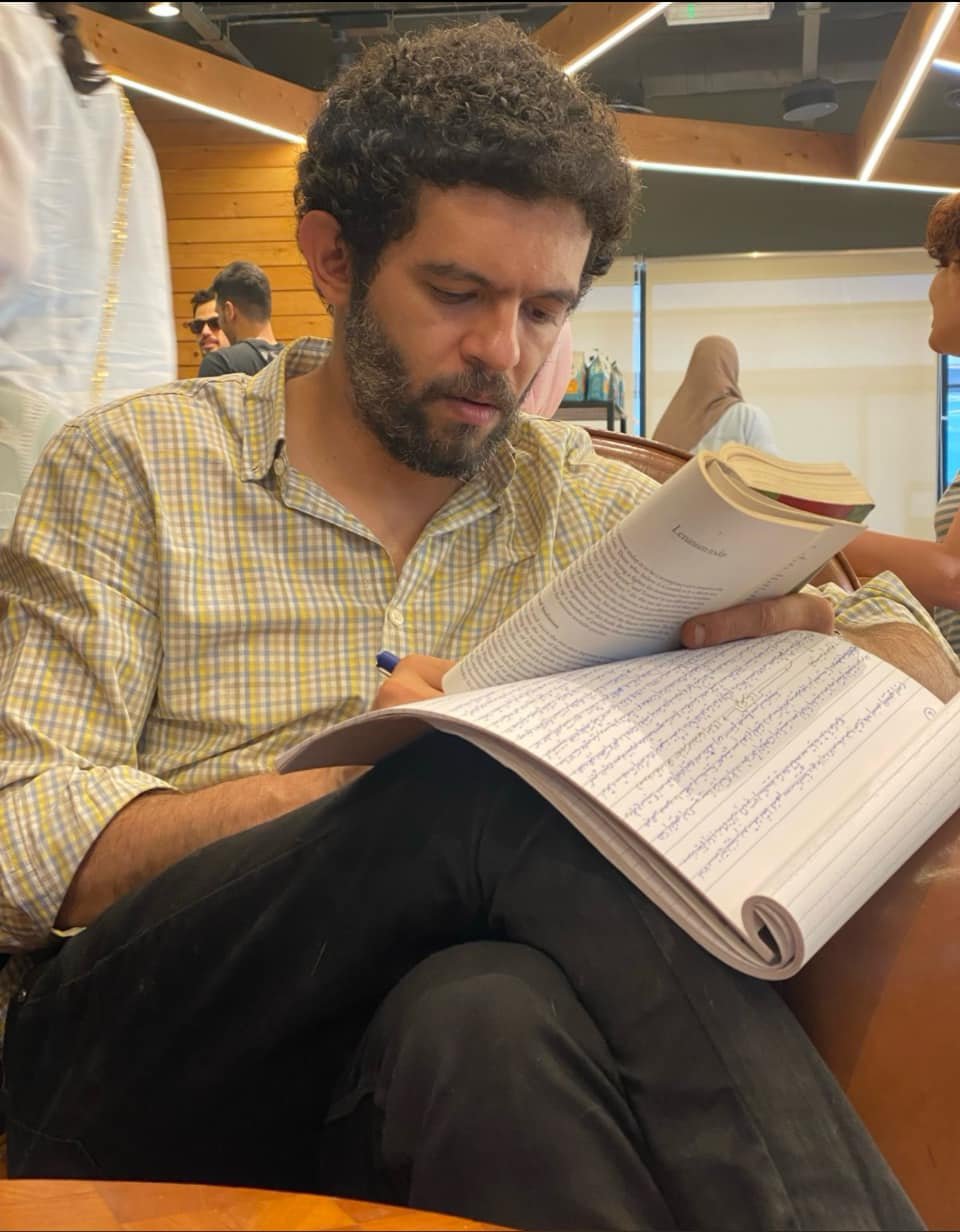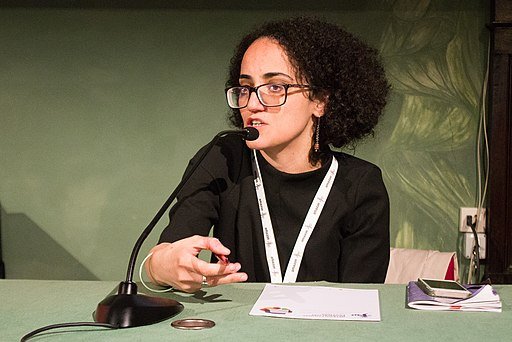Egypt: Authorities must end persecution of Poet Ahmed Douma over his peaceful expression
Photo credit: Sara Rifky , courtesy of Ahmed Douma
‘We strongly condemn the relentless persecution of Egyptian poet Ahmed Douma. Since his release last year after a decade of arbitrary imprisonment, Douma has continued to face threats and intimidating tactics in an attempt to silence him and to serve as a warning to other critical voices. Egyptian authorities should immediately cease all efforts to intimidate and harass Douma and drop all charges against him. We also call for an end to the systematic crackdown on freedom of expression in Egypt,’ said Burhan Sonmez, President of PEN International.
11 November 2024: PEN International is gravely concerned by the escalating intimidation tactics and threats directed against Egyptian poet Ahmed Douma, who has been subjected to physical assaults, smear campaigns, judicial harassment, the freezing of his bank accounts, and a defacto travel ban. We are particularly concerned by the authorities’ latest investigation over his social media posts and call for all charges against him to be dropped. The organisation calls upon the Egyptian authorities to end all acts of intimidation, incitement and threats against poet Ahmed Douma, and to ensure that he can travel and access public services without restrictions.
On 10 November, Egypt’s notorious Supreme State Security Persecution (SSSP) released Egyptian poet Ahmed Douma on a bail of 20,000 EGP (£316) after he was accused of ‘broadcasting and disseminating false news abroad and at home that would undermine the prestige of the state, harm national interests and disturb public peace’. On 7 November, Douma announced that the SSSP summoned him for an investigation without giving him further details. On Sunday, 10 November, Douma was subjected to an eight-hour investigation concerning statements he made on social media about the MV Kathrin, a cargo ship previously linked to transporting weapons to Israel, docking at Egypt’s Port of Alexandria. However, he was not allowed to have a copy of the case file or to receive details about the complaint that spurred the investigation.
Earlier in October, the Boycott, Divestment, Sanctions (BDS) movement raised concerns about the ship docking the Port of Alexandria port after it was denied access to several countries, including Malta, Namibia, and Angola. The news sparked a wave of criticism on social media and concerns that Egypt may be in violation of its international obligations, including under the Genocide Convention, prompting a group of Egyptian lawyers to file a petition to the public prosecutor to investigate the potential role of the chair of the Alexandria Port Authority and the chief executive of the Egyptian Maritime Consultancy Office in permitting the ship to enter Egypt’s waters.
On 31 October, a pro-government lawyer and a member of the Coordination’s Committee of Parties’ Youth Leaders and Politicians, a coalition of young members of pro-government political parties, said she filed a complaint accusing Douma of ‘spreading rumours to destabilise the country’. The complaint was made within the context of Douma’s social media posts about the ship.
Two weeks earlier, on 15 October Ahmed Douma was physically assaulted by three individuals in plain clothes after clearly identifying him in an apparent targeted attack. In mid-July, Douma faced an online smear campaign after pro-government religious figures deemed parts of his poetry collection Curly as ‘an attack on the divine self and blatant and explicit blasphemy’. Labelling creative work, including poetry, as blasphemous places the creator of such work at risk of assault and imprisonment, which could have grave consequences for Douma and represent a risk to his physical safety and freedom.
Although Douma was released in August 2023 following a presidential pardon after serving over a decade in prison, he remains under a defacto travel ban, unable to obtain official documents, including his passport, and unable to use his bank account. He has previously reported that his emails and social media accounts have been hacked several times since his release, and he continues to receive threats of imprisonment from security agents for his writings and activism following his release. In January 2024, Douma was subject to another smear campaign by pro-government media figures due to his activism against the war on Gaza, including his criticism of the Egyptian authorities' lack of response to the siege on Gaza.
Background
Since President al-Sisi seized power in 2014, the country's human rights situation has been deteriorating. However, since he decided to run for a second term in 2018, the country has slipped into an unprecedented human rights crisis. Egyptian authorities continue to systematically punish any public or perceived dissent and severely repress the rights to peaceful assembly, association and freedom of expression. Scores of journalists, human rights defenders, activists and bloggers have been arbitrarily arrested, detained for prolonged periods without trial, and faced trumped-up charges solely in relation to their work or critical views.
For more information, please contact Mina Thabet, Head of the MENA Region, at PEN International, email: [email protected]




